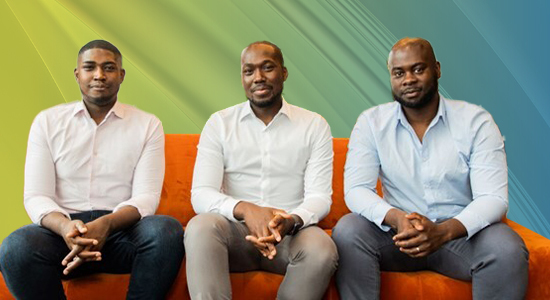
Rodney Appiah, founder and managing partner of diversity-led investment firm Cornerstone VC, may have a mission, but he doesn’t want his firm to be seen as an impact fund.
“We want to be viewed as a commercial fund,” Appiah told New Private Markets. “We do not want to be viewed as an impact fund, although clearly impact is a significant secondary benefit of backing diverse founders.”
Cornerstone VC was born out of a Black-led angel investor group, Cornerstone Partners, which Appiah co-founded in 2016. The young firm has just held a first close on £20 million ($24 million; €24 million) for its debut fund, raised from a mix of institutions and individuals.
BGF, a £2.5 billion UK-focused growth investor, and The Hg Foundation, a grant-giving foundation connected to private equity firm Hg, led the first close, the firm said in a statement. European venture capital firm Atomico is also an investor. A number of individuals, including Nic Humphries from Hg and former Silverfleet Capital chairman Neill MacDougal, have committed to the fund.
The firm will invest pre-seed and seed-stage capital in up to 40 companies run by management teams with inherent or acquired diversity. Inherent diversity would include things like gender, ethnicity or age, while acquired diversity would cover differences in experience, education or socioeconomic background.
Taking both inherent and acquired diversity into consideration mitigates one perceived issue that investors could have with funds backing diverse teams. “One of the challenges that LPs have considered with diversity-focused funds is that the pool is too narrow,” Appiah said. “If you look at the number of ethnic minorities in the UK, they represent 18 percent of the population, and that population is highly concentrated in London.
“The beauty of looking at diversity with a much broader lens – at both acquired and inherent diversity – is that you can start to look at diverse teams rather than just diverse individuals. And that opens up the pipeline potential to invest capital to hopefully drive commercial returns over the longer term.”
The fund does not have a prescriptive remit as to what constitutes diversity; instead its origination model is set up to “prioritise undiscovered, overlooked founders, which tend to be founders from diverse backgrounds,” said Appiah, who leads the firm alongside two partners: his brother Edwin Appiah and Wilfred Fianko.
“We want to move diversity investing away from it being simply tokenistic and impact-driven to something commercially rigourous and sustainable over the long term,” he continued.
The firm has carved out a portion of the carried interest for the 20 members of its angel network. “We’re keen not only to incentivise the angel network, but also to create the next generation of diverse emerging managers,” explained Appiah. The model was partly inspired by that of Kindred Capital, a VC firm that allocates carry points to the founders it backs as a way of increasing alignment.
“For us it feels very logical, because you are having a new generation of managers emerge from diverse backgrounds – both in terms of their career backgrounds and in terms of their ethnicity and socioeconomic backgrounds – and giving them exposure to the realities of managing institutional capital,” Appiah said.
The firm is targeting commercial rates of returns, Appiah added, noting that, while the firm will be tracking and reporting on the impact of its investments, “first and foremost we will be judged on the money we deliver”.
The fund will hold a final close in a year’s time. “If we can raise incremental capital from strategic LPs that we think can help us on our mission, we will do so,” Appiah said. “And if we can’t, we are very confident in our ability to return on the £20 million and prove our thesis around backing diverse founders.”






 If you do not receive this within five minutes, please try to sign in again. If the problem persists, please email:
If you do not receive this within five minutes, please try to sign in again. If the problem persists, please email: